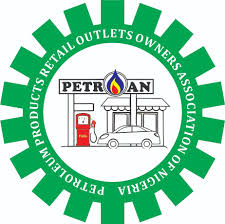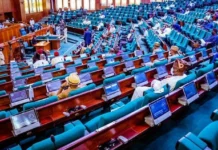Barely days after Dangote Petroleum Refinery announced its plan to commence nationwide distribution of diesel and Premium Motor Spirit (PMS) starting August 15, 2025, ripples have begun to spread across Nigeria’s downstream sector, with key players raising serious objections.
The Petroleum Products Retail Outlets Owners Association of Nigeria (PETROAN) has voiced strong opposition to the refinery’s plan, warning that the move could trigger widespread business closures and job losses across the country’s fuel distribution chain.
In a statement issued on Monday, PETROAN described Dangote’s direct-to-retail model as a “forward integration strategy” that could upend existing market structures. Signed by the association’s Publicity Secretary, Joseph Obele, the statement cautioned that thousands of independent marketers, fuel transporters, tank farm operators, and jetty owners may be forced out of business if the new system is implemented unchecked.
“The Dangote Refinery is a massive asset with a capacity of 650,000 barrels per day and is expected to compete with global refineries. Instead, it is positioning to dominate the downstream distribution network, a role traditionally filled by independent marketers and logistics providers,” the association said.
The group expressed fears that the refinery’s plan to supply fuel directly to filling stations would effectively cut off existing supply chain players, giving Dangote Group an unfair market advantage. PETROAN also warned that the introduction of 4,000 Compressed Natural Gas-powered tankers by the refinery could displace thousands of traditional diesel truck operators.
According to PETROAN, this strategy could result in price manipulation, weakened competition, and long-term negative consequences for consumers. The association said it had long anticipated such a move and had previously raised red flags about Dangote’s perceived ambition to dominate the downstream petroleum sector, much like it has done in other industries.
“This approach could cripple the existing distribution infrastructure and lead to a monopolistic control of pricing and supply,” Obele stated. “Thousands of retail outlets may shut down, modular refineries will struggle to stay afloat, and job losses could become inevitable.”
The statement added that the effects of this shift are already being felt. Since the deregulation of the downstream sector in 2023, over 4,900 fuel retail outlets have shut down due to harsh market conditions, while more than 70 tank farms and 95 jetty operators are now inactive.
Marketers also expressed frustration over pricing volatility attributed to the Dangote refinery and fuel importers, saying it has driven many independent operators into financial distress.
In response to the growing unease, Dangote Refinery has defended its initiative, stating that the move is aimed at reducing fuel prices and improving accessibility, especially in underserved regions. The company clarified that fuel station owners can now make direct purchases and receive free delivery, eliminating the need for third-party intermediaries.
The refinery described the initiative as a step toward improving efficiency, strengthening Nigeria’s energy security, and boosting government revenue while supporting local economies.
However, PETROAN is calling on the Nigerian Midstream and Downstream Petroleum Regulatory Authority (NMDPRA) and the Ministry of Petroleum Resources to step in. The association’s president, Dr. Billy Gillis-Harry, urged authorities to implement fair competition policies and enforce regulatory frameworks that prevent market dominance.
“While we welcome private sector participation, it must be done within a balanced market system,” Gillis-Harry said. “We need regulatory safeguards to ensure that no single player can control the entire fuel supply chain in a way that stifles competition and threatens livelihoods.”
He also urged the government to explore alternative livelihood options for truck owners, fuel depot workers, and other stakeholders who may be affected by the shift.
Meanwhile, some industry experts have welcomed Dangote’s distribution model, noting its potential to reduce logistics costs, improve product availability, and bring relief to consumers who currently face high fuel prices and erratic supply. They argue that if properly regulated, the move could modernise Nigeria’s energy landscape and drive competition among remaining players.
As the August 15 rollout date approaches, all eyes are now on the regulators to ensure that market reforms strike a balance between innovation and fairness, and that economic efficiency does not come at the cost of thousands of Nigerian jobs.










